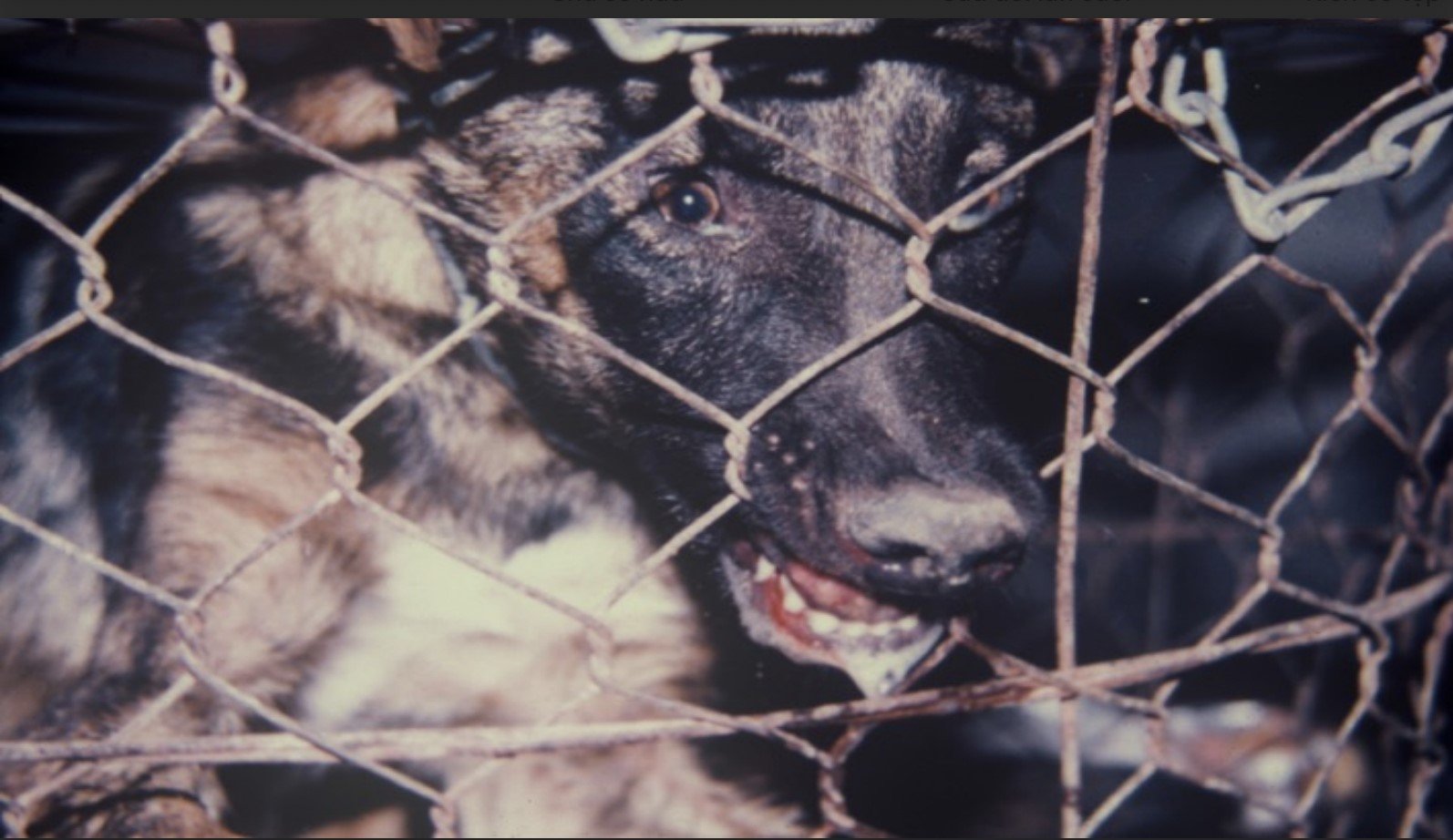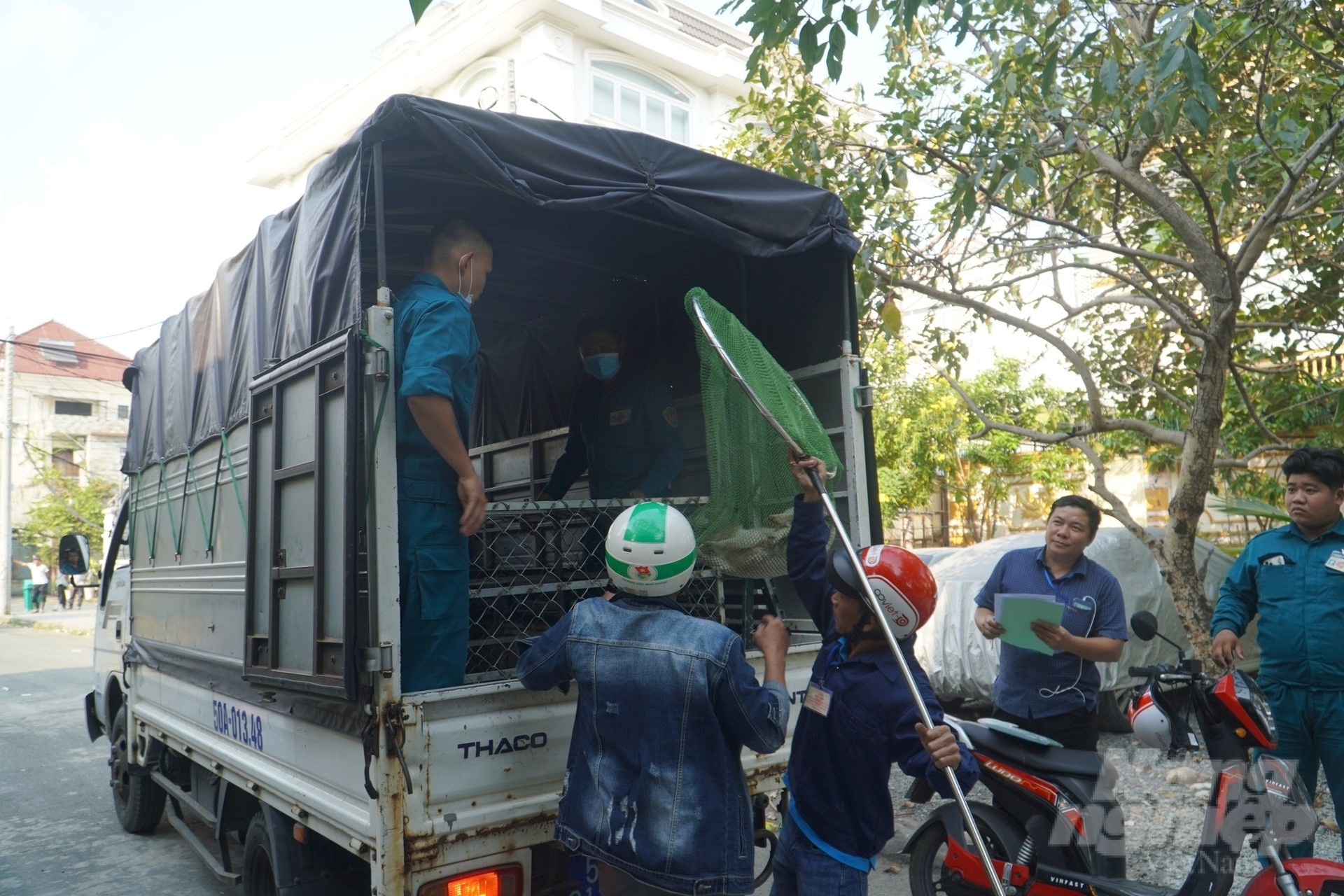June 18, 2025 | 11:11 GMT +7
June 18, 2025 | 11:11 GMT +7
Hotline: 0913.378.918
June 18, 2025 | 11:11 GMT +7
Hotline: 0913.378.918

Speakers shared at the scientific seminar "Together repelling rabies". Photo: Nguyen Thuy.
The above-mentioned information was given at the scientific seminar "Together repelling rabies," organized by Ho Chi Minh University of Agriculture and Forestry in collaboration with One Health Consultation Co., Ltd. on October 3.
Dr. Nguyen Thi Phuoc Ninh, lecturer at the Faculty of Animal Science and Veterinary Medicine, Ho Chi Minh City University of Agriculture and Forestry, said that rabies exists in 150 countries and territories. Every year, 60,000 people die of rabies, of which up to 99% die of rabies due to infection from rabid dogs.
"Every 10 minutes, about 1 person dies of rabies," Dr. Ninh said, adding that about 15 million people were exposed to rabies and received preventive treatment, causing an estimated loss of about USD 8.6 billion to the global economy each year.
Doctor Nguyen Thi Phuong Thuy, Former Secretary of the Southern Regional Rabies Prevention Project at the Pasteur Institute in Ho Chi Minh City, said that rabies is the leading cause of death among infectious diseases in Vietnam. 70% of deaths each year are due to rabies, even though there are vaccines for both humans and animals.
“Vietnam is a hot area for rabies, the disease occurring nationwide with patients dying of rabies every year. There were nearly 550 deaths stretching from the North to the South in the period 2011–2016 and about 400 deaths from 2017 to 2021.
In the first nine months of 2023, 64 deaths due to rabies were recorded in 27 provinces and cities across the country, including the North (25 cases); the South (15); the Central (9); and the Central Highlands (15). Among them, Gia Lai is the locality with the highest number of cases, with 11 cases, followed by Nghe An (7), Dien Bien (6), and Binh Phuoc (5),” said Doctor Thuy.
According to Doctor Thuy, 100% of people died because they were not vaccinated after exposure, and up to 43.8% subjectively believed that being bitten by domestic dogs was not harmful.
Vietnam is making efforts to implement measures to prevent and combat rabies in animals in the period 2022–2030. Specifically, in the period 2022–2025, dogs and cats belonging to 70% of dog and cat raising households will be managed. 70% of all pet dog and cat herds are vaccinated against rabies, and over 70% of provinces and cities can monitor dogs and cats infected with or suspected of being infected with rabies.
In the period 2026–2030, dogs and cats of over 90% of dog and cat raising households will be managed; 80% of all pet dog and cat herds are vaccinated against rabies, and over 90% of provinces and cities can monitor dogs and cats infected with or suspected of being infected with rabies.

In the first eight months of 2023, the number of rabies outbreaks nationwide increased by approximately 54% compared to the same period in 2022. Photo: Nguyen Thuy.
According to Dr. Nguyen Thi Phuoc Ninh, lecturer at the Faculty of Animal Science and Veterinary Medicine, Ho Chi Minh City University of Agriculture and Forestry, animals with the highest risk of spreading the rabies virus to humans include pets and farm animals (dog, cat, cow, civet cat, goat, and horse); and wildlife (bat, beaver, coyote, fox, monkey, panda, skunk, and groundhog).
Factors that can increase the risk of being infected with rabies include traveling to or living in developing countries where rabies is more common. Activities that can potentially expose you to rabies-infected wildlife, such as exploring caves where bats live; camping without taking precautions to keep wildlife away from your campsite; working as a veterinarian; or working in a laboratory with the rabies virus.
Dr. Ninh said that, to prevent rabies, do not loose dogs freely; avoid contact with wildlife or sick pets; strictly control the number of pet dogs and cats; and especially have dogs and cats vaccinated against rabies.

The functional force catches loose dogs to avoid spreading rabies. Photo: Nguyen Thuy.
According to Dr. Ninh, the main reason for using the rabies vaccine is to protect animals as well as humans. There are two types of vaccines licensed for use, including the injectable vaccine to prevent diseases in domestic animals and the oral vaccine (ORV) for wildlife and loose dogs.
"Injectable vaccines for dogs remain the foundation of mass vaccination campaigns. Using oral vaccines, especially in loose and hard-to-reach dogs, would be an additional measure for vaccination coverage to improve the overall situation in programs on controlling rabies in dogs," said Dr. Ninh.
According to data from the Department of Animal Health, as of August 2023, the country's total dog and cat herds reached over 7.4 million heads, and the vaccination rate reached over 47%. Therefore, according to Dr. Truong Dinh Bao, Deputy Head of the Department of Infectious Diseases and Veterinary Public Health, Faculty of Animal Science and Veterinary Medicine, Ho Chi Minh City University of Agriculture and Forestry, in order to prevent rabies, it is necessary to have a One Health approach, mobilizing resources from all departments, branches, levels from central to local, people in the public administration sector, private companies, etc., to protect human health, animal health, and environmental health.
Translated by Huyen Vu Thu

(VAN) According to the Binh Thuan Department of Industry and Trade, in the first five months of 2025, Binh Thuan's dragon fruit export turnover increased by 20.65% compared to the same period last year.

(VAN) EU countries on Thursday gave final approval to new tariffs on fertilizer imports from Russia, a move aimed at cutting off revenue that could support Moscow’s war in Ukraine, despite concerns from European farmers.

(VAN) The working delegation from the Ministry of Agriculture and Environment conducted an important trip to the Netherlands to strengthen strategic partnerships and sustainable development in the agricultural sector.

(VAN) The letter ‘A Plea from the Ocean’ not only evokes emotion but also awakens the human conscience to the responsibility of protecting life on Earth.

(VAN) The Department of Agriculture in South Africa has announced the country’s first mass vaccination of poultry to prevent local birds from contracting avian influenza.

(VAN) Establishment of the Mekong Delta Regional Agricultural Linkage Center, aiming for a closed value chain, deep processing, trading platforms, and international market connectivity.

(VAN) Gia Lai province has recently recorded 460 rare species of animals and plants, contributing to forest conservation and biodiversity planning in the region.